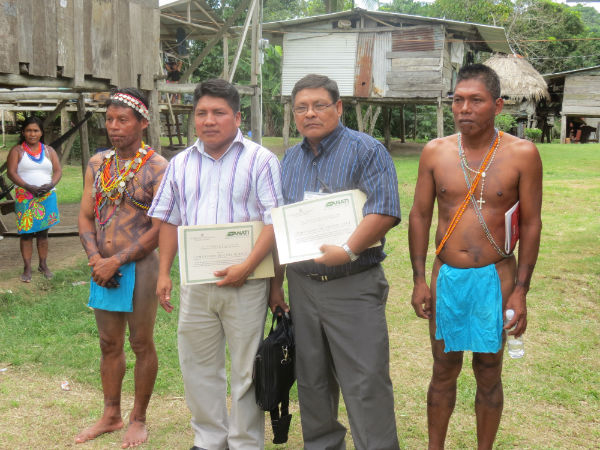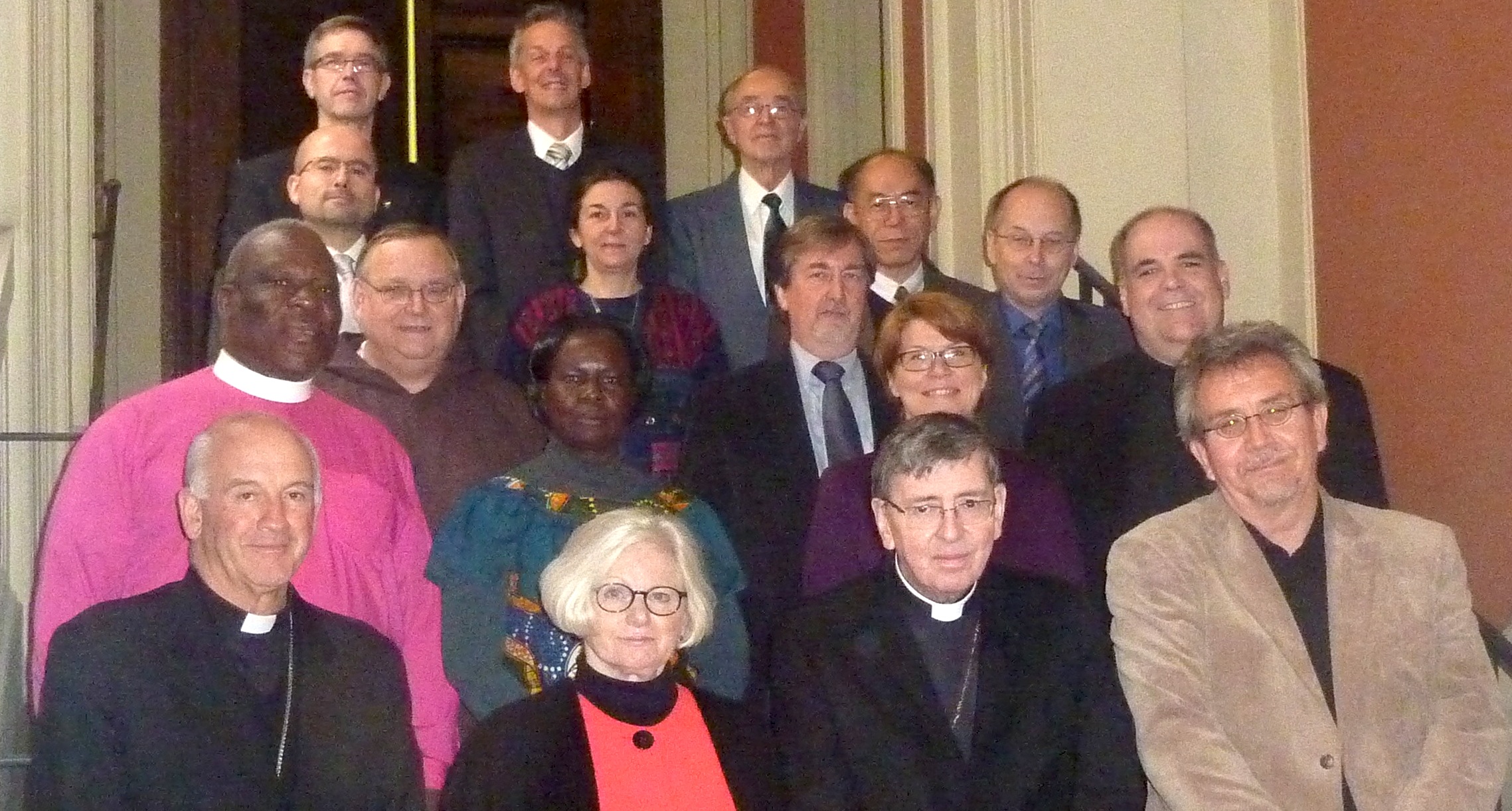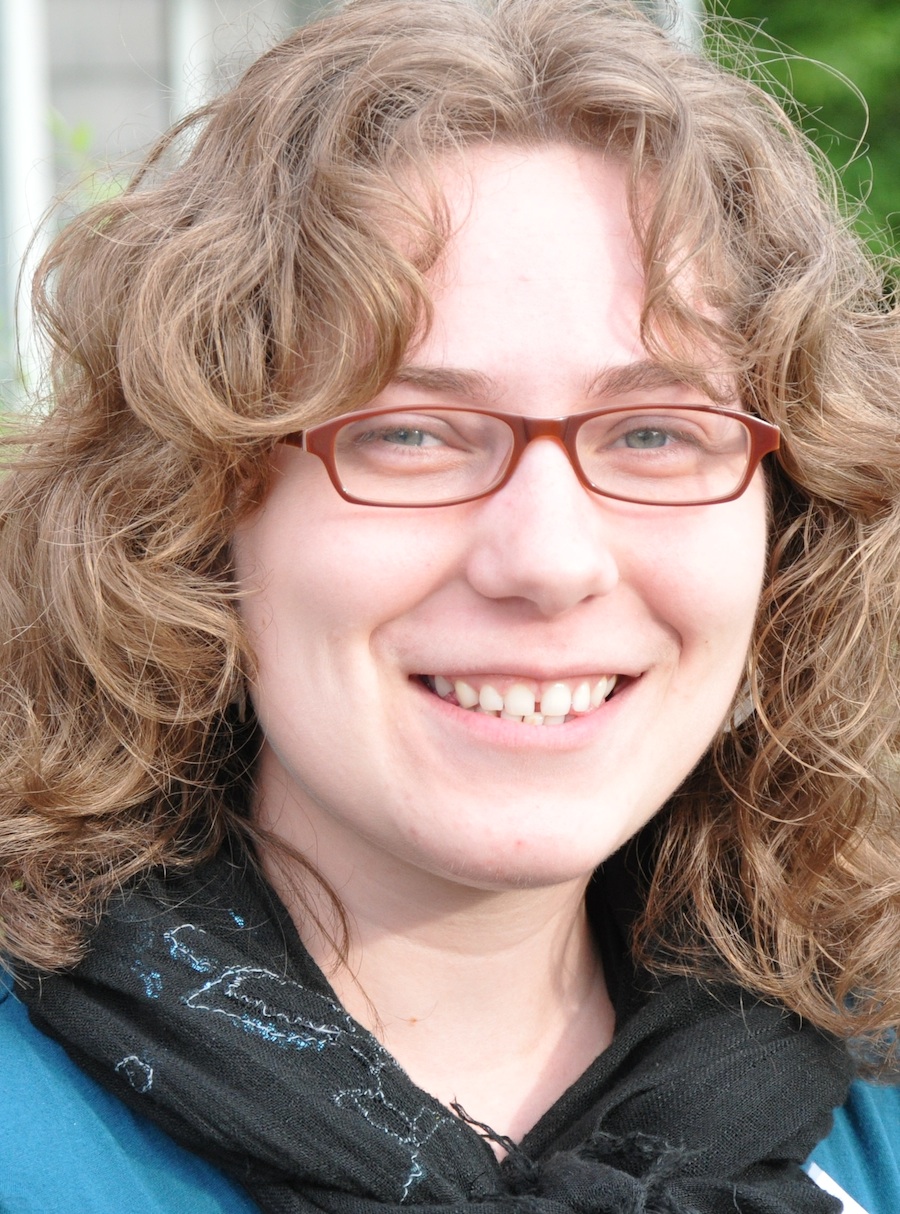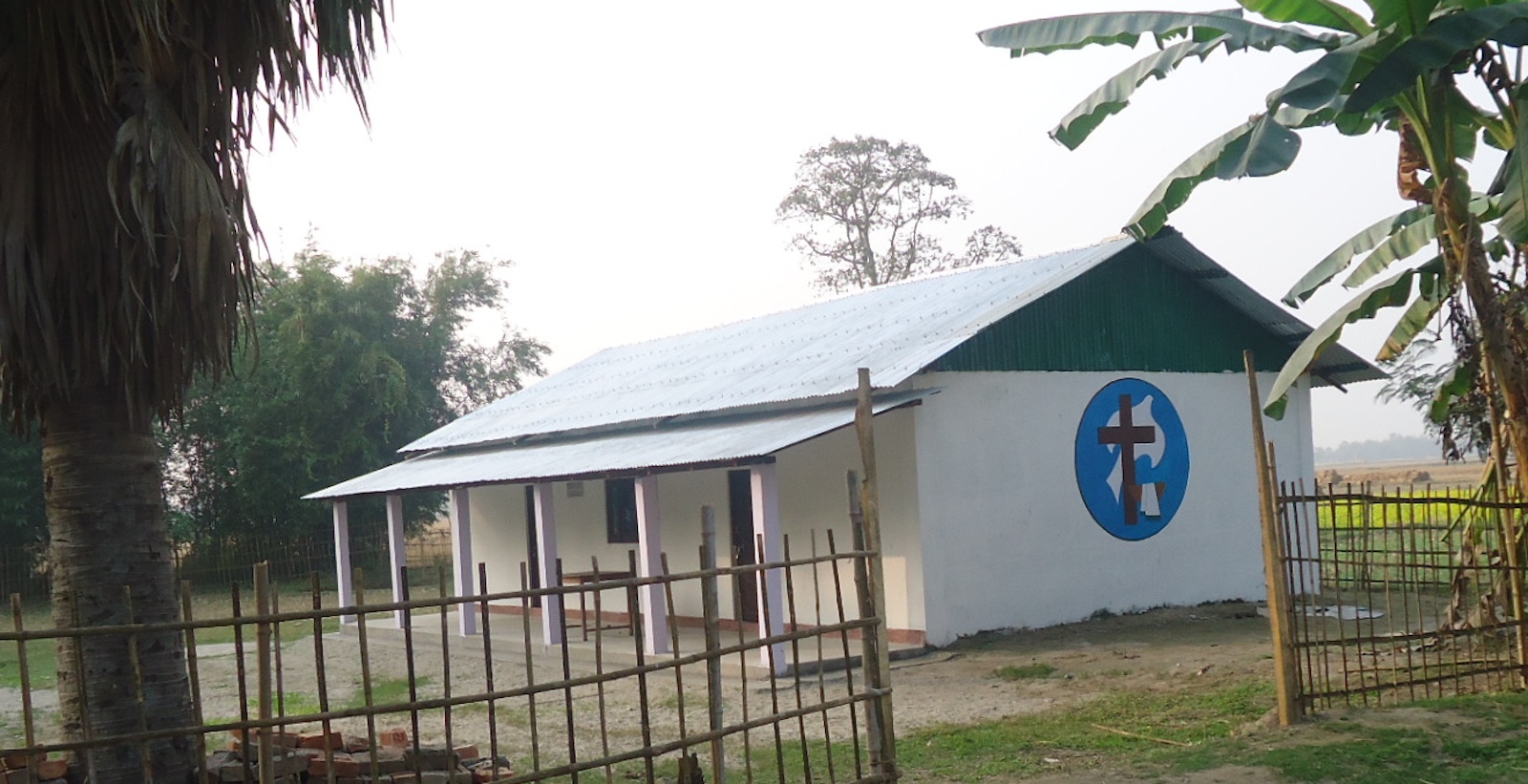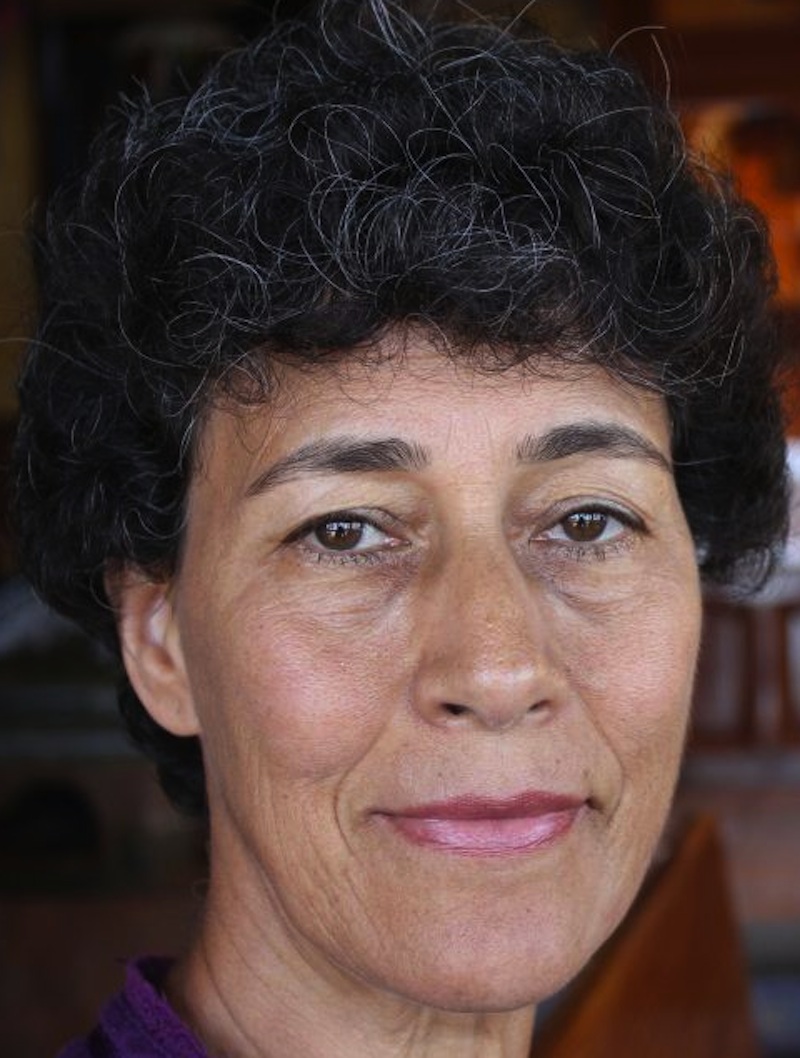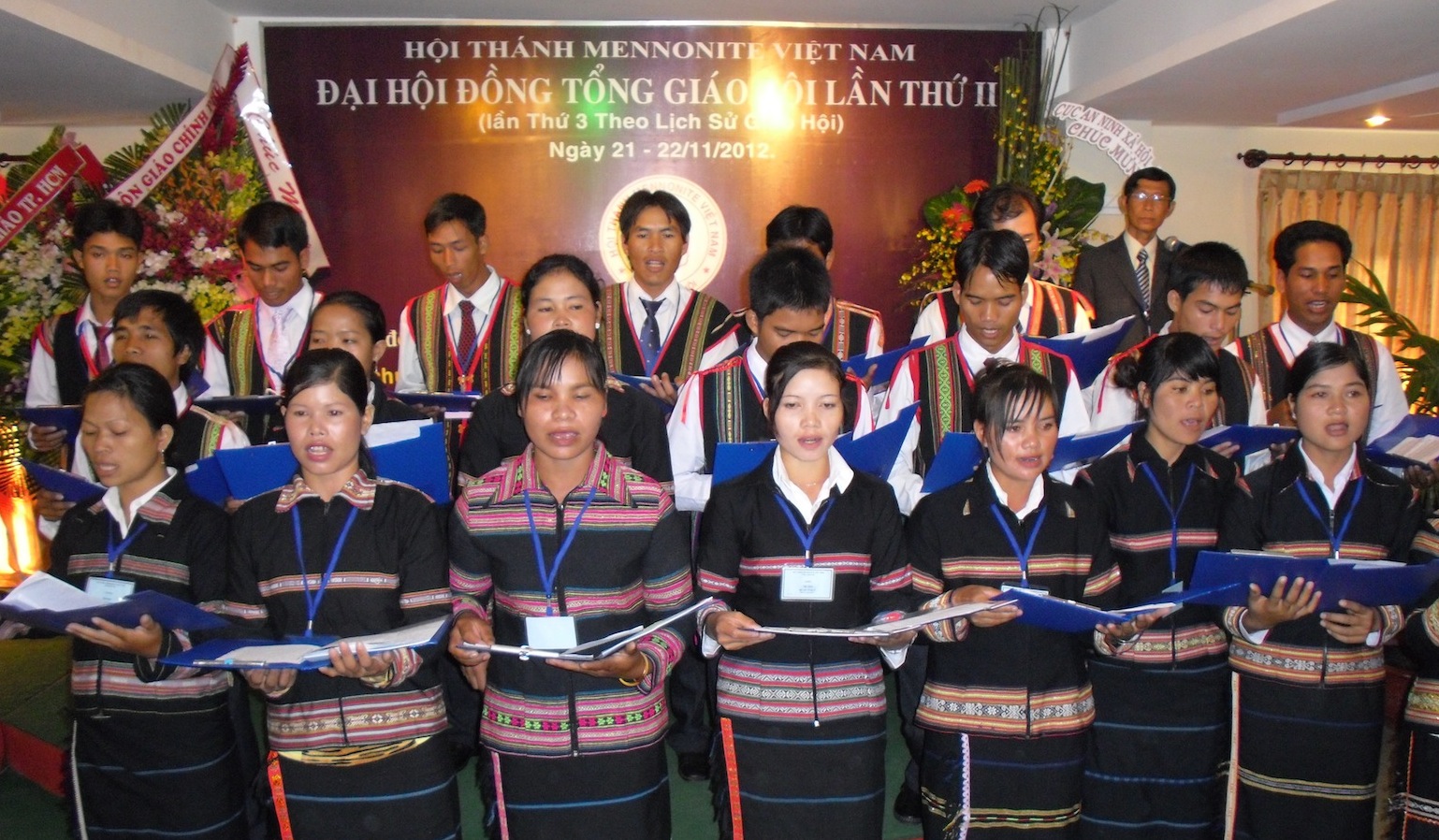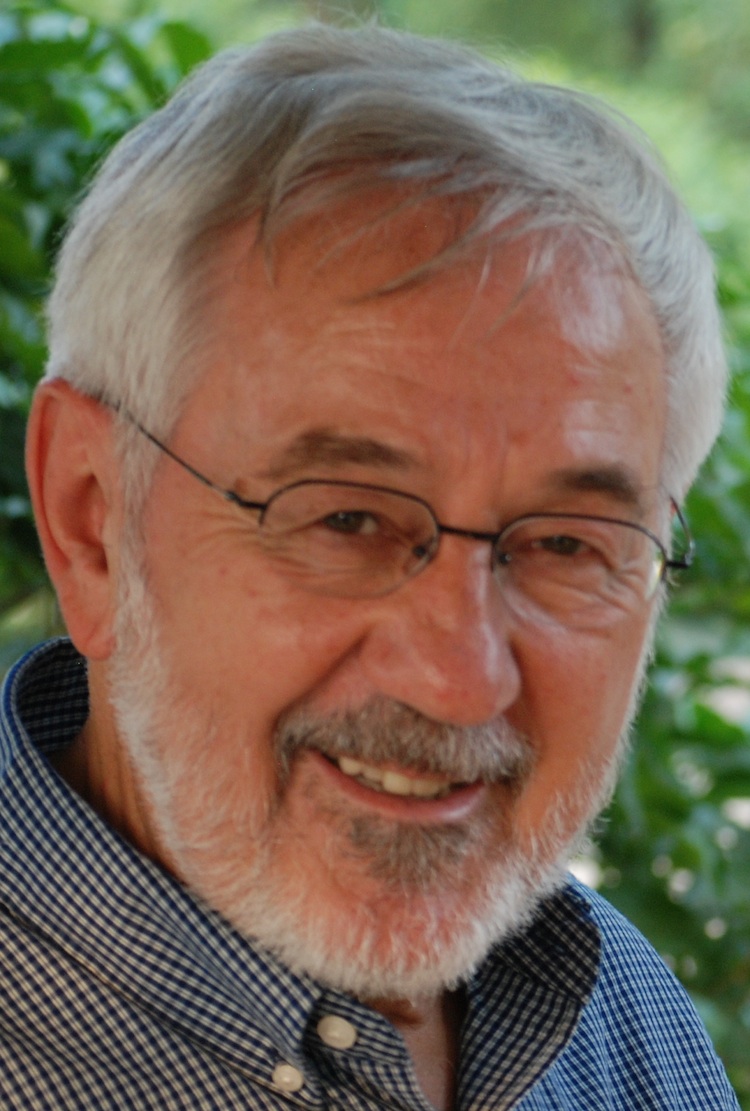-
Panama’s Wounaan community receives land rights certificate
In early April 2012, members of Iglesia Evangélica Unida Hermanos Menonitas de Panamá (United Evangelical Mennonite Brethren Church of Panama), requested prayer for the peaceful settlement of land claims, following a confrontation between members of the Wounaan community and loggers. The recent incident involved members of the Wounaan community from Platanares confronting persons who were
-
New website and publication changes are part of communication plan for 2013
Bogota, Colombia – At its May 2012 meetings in Switzerland, the Mennonite World Conference (MWC) General Council approved a global communication strategy calling for changes in the reach, frequency, form and content of MWC communications. Undergirding the new plan is the goal of seeking to connect as many people as possible across cultures within the
-
Baptism the focus of trilateral dialogue by Mennonites, Catholics and Lutherans
An international trilateral dialogue between Mennonites, Catholics and Lutherans began in Rome, 9-13 December 2012.
-
Kristina Toews to serve as MWC Web Communications Worker
Bogota, Colombia – Kristina Toews of Abbotsford, B.C. has been appointed to serve as Web Communications Worker with Mennonite World Conference. The MWC position will be the main part of her three-year assignment as a Mennonite Central Committee volunteer in Bogota, Colombia, where both MWC and MCC have offices in the same building. As Web
-
Devin Manzullo-Thomas appointed as MWC Editor and Writer
Waterloo, Ontario – Devin Manzullo-Thomas of Harrisburg, Pennsylvania, has been appointed as Editor and Writer for Mennonite World Conference beginning January 2013. In this half-time position, he will serve as part of the MWC communication team, helping to generate stories of churches and people from the global faith family. He will also serve as editor
-
Nepal believers dedicate concrete church building
Babiya, Nepal – Believers from the Behelwa Brethren in Christ (BIC) Church were eagerly waiting for the day to worship the Lord in a newly constructed concrete church building. Hundreds, including leaders from neighbouring churches and the BIC Executive Board, gathered 30 November, 2012 for a dedication service. Cynthia Peacock of India, chair of the
-
Mennonite pastor, sister and nieces killed in Mexico
Cuauhtémoc, Chihuahua, Mexico – Josefina (Chepina) Rempening Diaz, her sister and two nieces were found dead on December 14 as victims of violence. They were on their way to the funeral of a relative in Guauchochi, a village in the mountains southern of Chihuahua. She pastored Ebenezer Mennonite Church with her husband, Walter Rempening, president
-
Vietnam Mennonite Church reviews work after four years as registered church
Ho Chi Minh City, Vietnam – Four years after completing official registration with the government, leaders of the Vietnam Mennonite Church met November 21-22, 2012 to review their work and to project ministries for the next four years. The conference was held at the Cong Doan Hotel in the city’s Binh Thnh district, the area
-
Bert Lobe completes service with MWC
St. Jacobs, Ontario – After four and a half years in various Mennonite World Conference staff roles, Bert Lobe will complete his service at the end of 2012. Lobe was first appointed in May 2008 as the MWC Global Church Advocate in North America. He provided leadership in the restructuring and administration of the Global
-
Lynn Roth appointed as MWC North American Representative
Bogota, Colombia – Lynn Roth of Harrisonburg, Virginia, has been appointed as the North American Representative for Mennonite World Conference beginning part time in January 2013. The appointment was announced by César García, MWC General Secretary. “Lynn’s international experience plus his years of service in Mennonite institutions and churches in North America make him an
-
Seminars encourage spiritual renewalñand much more – in Burkina Faso
German translation pending
-
Heaven Came Down in Awassa
Awassa, Ethiopia – The Meserete Kristos Church (MKC) hosted the 16th annual meeting of the International Missions Association (IMA) in Awassa, Ethiopia, September 18-26, 2012, on the beautiful shores of Lake Awassa. The IMA consists of 22 Anabaptist groups dedicated to fellowship, prayer and fasting, information sharing, resourcing, and partnership for global mission, especially in
